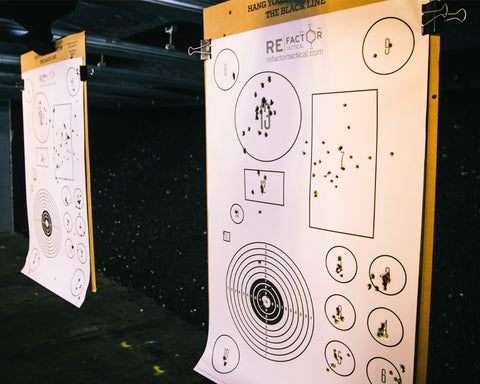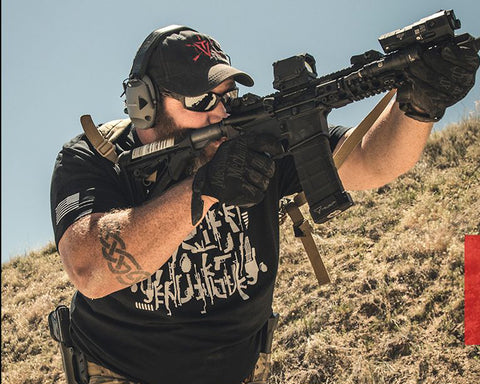What You Need To Know
- ✔ You don't have to make a down payment, but it will save you money on your VA loan
- ✔ Not all sellers will agree to this, but having the seller pay your closing costs will save you a lot of money
- ✔ Refinancing is a great way to save, and the VA won't let you do so unless it makes financial sense
When it comes to a VA loan, most of us know about the zero down payment and all that. For a majority, the zero down payments is the reason we are attracted to the loan. Because of this, it is typically easier to qualify, and more veterans are able to buy their homes because they don’t have to put 20% down on a $280,000 home. However, despite all the good stuff, it’s time, to be frank, and talk about the downsides to a VA loan vs conventional.
Disclaimer: This particular VA loan blog comes from my own personal experiences and what I’ve heard from my fellow veterans. We understand that not everyone will have these experiences, and most of us will be exposed to different scenarios, and therefore different outcomes. Take away from this post what you will, but also do your own research before deciding which loan is best for you.
VA Home Loan vs Conventional Home Loan
The following are various scenarios from personally known veterans and myself.
Scenario 1
In 2011, I purchased my first home. I used a VA loan, paid zero-down and got the best interest rate on the market for the time. The process was easy—my realtor and lender both were well versed in VA loans, and it was in a heavily populated military/veteran community. The home I purchased was only 8-years old, and according to the VA in good condition. The appraisal came back, and the VA did not challenge anything, therefore I did not have to ask the sellers to make changes to the home and the entire process took less than a month.
Scenario 2
In 2016, I looked to purchase a home through the VA home loan process. The house was over 20 years old but had a major renovation done to it. The homeowners claimed they had done over $100,000 in renovations, but the VA still had concerns. The VA wanted handrails put up—the homeowners said no, it would cost them $1,000 (this in itself was questionable)—and about $5,000 worth of foundational work. The homeowners agreed to the foundation work but refused to put in handrails. I could have requested a waiver from the VA, but this would have extended my purchasing process, and the waiver was not guaranteed approval. Also, I did not want to put 20% down on the home in a conventional loan and walked away due to time constraints.
Scenario 3
In 2017, I purchased a home with a conventional loan. The home was almost 90 years old, no major renovations were done, and if I would have chosen to use a VA loan, they would have requested the homeowners to do between $20,000 and $50,000 in repairs. Also, the home was a “sell as is” purchase, and the VA would not have signed off on the house, as it was not considered “safe for habitation.” Due to my credit score, I only paid 5% down on the home, and the process took about 3-weeks.
Is a VA loan better than a conventional loan?
From the above scenarios, you might come to the conclusion that VA loans aren’t always the best option. Now, I’m not saying that you shouldn’t go with a VA loan. In most cases, this is an awesome option, and you should try this avenue before looking into a conventional loan. VA loans are typically competitive when it comes to your interest rate, they’re typically not difficult to qualify for (although the better your credit score, the better your interest rate. Also, the lenders still have a say in minimum credit score). Also, a majority of service members and veterans qualify for a zero-down payment.
When you aren’t a qualifying veteran (you were discharged under dishonorable conditions), you cannot get a waiver from the VA for things the seller doesn’t want to comply with, and/or you are under time restraints, which won’t be met if you go with the VA loan option, then it might be time to 1. Look at doing a conventional loan 2. Look at buying a different home or 3. Consider changing your timeline.
Again, VA loans are great, but there will be times when a conventional loan might make more sense for your particular scenario. For example, in scenario 3, the VA loan just wasn’t going to work. The veteran went with a conventional loan because their heart was absolutely set on that particular home. Of course, the veteran could have looked at buying a different house that the VA would have approved, but for that veteran, the conventional loan made sense.
In scenario 2, the sellers weren’t willing to budge. Of course, the veteran could have gone with a conventional loan instead. But, between the seller’s time restraints and the lack of a guaranteed waiver approval from the VA, the veteran chose to walk away. In this scenario, neither loan option worked for that veteran, but both could have potentially worked had both parties been willing to make it work.
In scenario 1, the VA loan was the best option for the veteran. The veteran got a competitive rate, the process was smooth, and due to the age and shape of the home, there were no hoops to jump through before purchasing the home. Overall, the interest rate and lack of down payment made more sense than going with a conventional loan.
Pros and Cons of a VA Home Loan
Pros of a VA Home Loan
- Typically easier to get (credit score)
- Typically fewer fees
- Typically no down payment (there are some cases where this is not true)
Cons of a VA Home Loan
- The standards are higher so it might be harder to get a home approved for the loan
- It’s harder to get an older home (again, standards are higher)
- The process can take longer, meaning some sellers might not want to work with you
Pros and Cons of a Conventional Home Loan
Pros of a Conventional Home Loan
- Typically a faster process than the VA loan
- Typically easier to get (standards are not as high, easier to get an older home)
- If you have a high credit score, you can get discounted fees and pay a lower down payment
Cons of a Conventional Home Loan
- Typically, there will be a down payment, sometimes up to or over 20% of the home’s cost
- Typically requires a higher credit score than the VA
- Typically there are more fees
FHA vs Conventional Loan
Much like a VA loan, FHA loans are typically easier to get than a conventional loan. First and foremost, your credit score does not have to be as high to qualify, and generally, a credit score as low as 580 will be qualifying. The biggest downside to the FHA loan, while backed by a federal bank, you are still required to pay a 1.75% upfront for mortgage insurance. It doesn’t matter how little or how much your down payment is, you’ll be required to pay that 1.75%.
Typically, the down payment is lower in an FHA loan as well—this is not always the case. If you’re looking to use an FHA loan, you might find yourself putting at least 3.5% down—much lower than the conventional loan. However, a conventional loan can come with a down payment as low as 3%—this is not standard—although 5-20% is more likely.
What does conventional loan mean?
Conventional loans are harder to get than a VA loan. While the process to obtain this particular loan has the potential to be quicker, there are some disadvantages to it compared to a VA home loan. For instance, if you have a high credit score and your income meets the standard, you could find yourself paying as little as 3% down on a conventional loan. While this doesn’t sound too bad, compared to the 20% down payment you probably grew up hearing about, it is not something guaranteed.
When I purchased my house, I was approved for a 5% down payment through a conventional loan. It made more sense to go that route because the house needed renovations beyond the VA’s comfort level. However, had my credit score been closer to the lower end of the scale, I most likely would have been looking at 20% down at closing. Of course, no one wants to pay more than they have to, and if feasible, this is when a VA loan would be a better option.
Conventional loans also mean you might have to pay more in fees. For instance, the VA governs what you can and cannot pay at closing. An example would be a termite inspection. The VA says it is up to the sellers to cover this cost. However, with a conventional loan, you could see a lot more debate on who pays what at closing. Of course, this is not to say you won’t go back and forth with the sellers on a VA loan, but typically, the fees are fewer.
Another consideration with a conventional loan is the difficulty in getting them. A VA loan does not typically require the buyer to have a high credit score. However, conventional loans do. Unlike the VA loan, who in a sense is backing the veteran, you won’t have that with a conventional loan, meaning the lender will expect better credit scores before approving you for the home loan.
However, having a higher credit score typically means your interest rate will be lower, which also means your monthly payments will be lower. Also, if you’ve put down money, you have less to pay off from the beginning and save money over time.
What is a conventional loan down payment?
When you go to close on your house, there are certain expectations that need to be met. For example, the down payment. While 20% is not necessarily required when using a down payment, putting that much down definitely has its perks.
For example, let us say you put down 20%, over time you’re going to save money and your mortgage payment each month will be lower. However, let us say you don’t want to put that much money down. While this may be acceptable, it is going to come with some extra costs.
If you decide to put less than 20% down on a conventional loan, you will be required to pay private mortgage insurance. This is also known as PMI. But, if you pay 20% or more, you do not have to worry about this payment, and again, your overall savings at the end of the day will be greater.
How long does it take to close on a house with a conventional home loan?
Just like a VA loan, conventional loans will take time, and that time is based on how fast you and the seller move, and any extenuating circumstances. However, the typical time frame for a conventional loan is 4-6 weeks. This does not mean you won’t see conventional loans take as few as 2 weeks or almost 2 months. Again, the time frame fluctuates, but 4-6 seems to be the standard.
How long does it take to close on a house with a VA home loan?
Similar to a conventional loan, using a VA loan should not extend the closing process. However, depending on special circumstances, in either case, it could take longer. Typically it takes less than two months. Again, if you have any special circumstances, it could take longer, but in perfect conditions, 4-6 weeks is more likely.
Table of Contents
- What You Need To Know
- Top VA Lenders
- VA Home Loan vs Conventional Home Loan
- Scenario 1
- Scenario 2
- Scenario 3
- Is a VA loan better than a conventional loan?
- Pros and Cons of a VA Home Loan
- Pros of a VA Home Loan
- Cons of a VA Home Loan
- Pros and Cons of a Conventional Home Loan
- Pros of a Conventional Home Loan
- Cons of a Conventional Home Loan
- FHA vs Conventional Loan
- What does conventional loan mean?
- What is a conventional loan down payment?
- How long does it take to close on a house with a conventional home loan?
- How long does it take to close on a house with a VA home loan?
- Veterans United
- Quicken Loans
- J.G. Wentworth
- Lending Tree
- NASB
Recent Posts
- M4 vs AR15 vs M16: Ultimate 2024 Guide to Differences & Uses
- The Ultimate Guide to M16 Barrel Length: 16” vs. 20”
- M855 vs M193 Face-off: Which 5.56 Round Dominates?
- 22 vs 9mm | Comprehensive Guide on Performance, Uses, and Ballistics
- AK-47 vs AR-15: The Ultimate Comparison and Faxon’s ARAK Hybrid Solution
- The Controversial Glock 18: Legal Status, Challenges, and How to Buy
- The Best SIG P365 Compensator: Elevate Your Shooting Experience with Faxon Firearms
- Shot Placement For Concealed Carry | Stop The Threat
- Hard Head Veterans Unveils American Made HHV ATE® GEN3 Ballistic Helmet
- The Ultimate 350 Legend Q&A: Top 20 Questions Answered







Leave a Reply
Your email address will not be published. Required fields are marked *